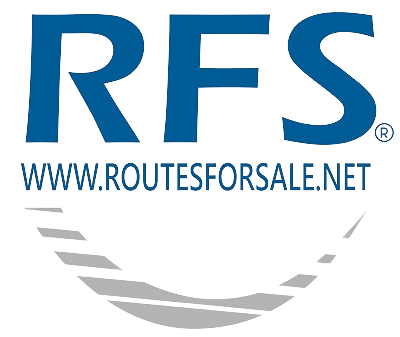Best Sources For Financing A Route Distributorship Or Route For Sale
We should begin by saying that it is challenging to buy a business with “no money down.” You should have at least some money to successfully acquire a business. About 50% of the routes we work with do offer some type of financing through the company. Typically banks will not approve loans for route distribution type businesses. Less than 20% of businesses are approved in a stable economy. That said, we can and will work with motivated buyers in a variety of creative ways to help you tap into all available resources to finance your future route. View more information and additional Financing Options Here.
Need Money? Our first recommendation is to apply for Financing Here for secured and unsecured loans based on your personal credit score. Loans include: business startups, additional lines of credit for existing businesses, and even programs that allow you to utilize your 401k or IRA if you have one. In some cases they are able to offer introductory rates with 0% interest for the first 6 months or more.
Requirements are as follows:
- 700+ FICO credit score (or have a cosigner)
- No derogatory credit marks within 6 months
- No judgments or collections in unpaid status
- Absolutely No Bankruptcies
- At least 1 established credit line with $5,000+ limit (the more established the credit, the higher the projection will be)
- Credit/ debt ratio under 60%
Some other commonly used sources for financing a route are summarized below:
Very Common Sources
- Cash equivalents (checking and savings accounts; money market funds, CDs)
- Stocks and bonds
- Gifts / loans from friends and family
- Second mortgages and other real estate loans
- Seller financing
- Credit card financing
Moderately Common Sources
- SBA financing / bank loans / bank lines of credit
- Retirement accounts (IRAs, 401Ks, SEPS, pensions, etc.). Many buyers are not aware that a small business is a perfectly legal and valid investment for most people in these accounts.
- Borrowing against a different existing business (lines of credit, accounts receivable factoring, inventory financing, equipment financing)
- Asset sales (real estate, autos, etc.)
Friends & Family
This is a commonly used source. If you plan to tap into this resource, we suggest having a candid conversation with them to work out precisely how much they are willing to invest, what the terms will be, what criteria the business will need to meet, etc. so that you can proceed with confidence and a clear understanding of their requirements. Unfortunately, without such candid discussions, misunderstandings are all too common, and deals as well as friendships can suffer.
Retirement Accounts
401Ks, IRAs and the like are being used more and more frequently to finance business acquisitions. Advantages of this source:
- Guaranteed; no approval of bank or seller required
- No interest, or penalties
- Returns on small business investment typically far exceed typical stock and bond returns
Seller Financing
While many sellers are reluctant to “carry paper”, we strongly encourage our seller clients to consider this option. Many sellers have heard stories about buyers who “ran the business into the ground and didn’t pay” and are naturally reluctant.
If agreed to, typical terms are 40-60% of the price financed, 7-9% interest, and paid monthly over 3-5 years on a fully amortized schedule. Occasionally, the loan is amortized over a longer term with a balloon payment to pay off the note entirely around the 3rd or 5th year, under the assumption the buyer can get a bank loan to pay off the note by that time.
The assets of the business serve as collateral, not your real estate. However you will need to personally guarantee the debt, sign a promissory note and execute a “security agreement” that secures the business assets as collateral for the note and is recorded on public records. Seller financing is sometimes used in combination with bank financing; e.g., 30% cash down, 50% bank financing, and 20% seller financing.
Bank Financing / SBA Loans
Banks and SBA guaranteed / insured loans are involved in only about 15-20% of business acquisitions. During the initial valuations of the seller’s business we are able to determine if the business qualifies for an SBA loan based on the type of business, amount of financial documentation the seller is able to provide, current income being generated, and various other factors. Note: Not all businesses will qualify. In addition to the business meeting the SBA qualifications, the buyer will also need to qualify for the loan as well.

 Chat
Chat



